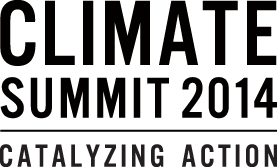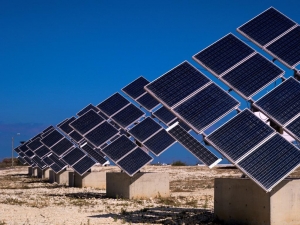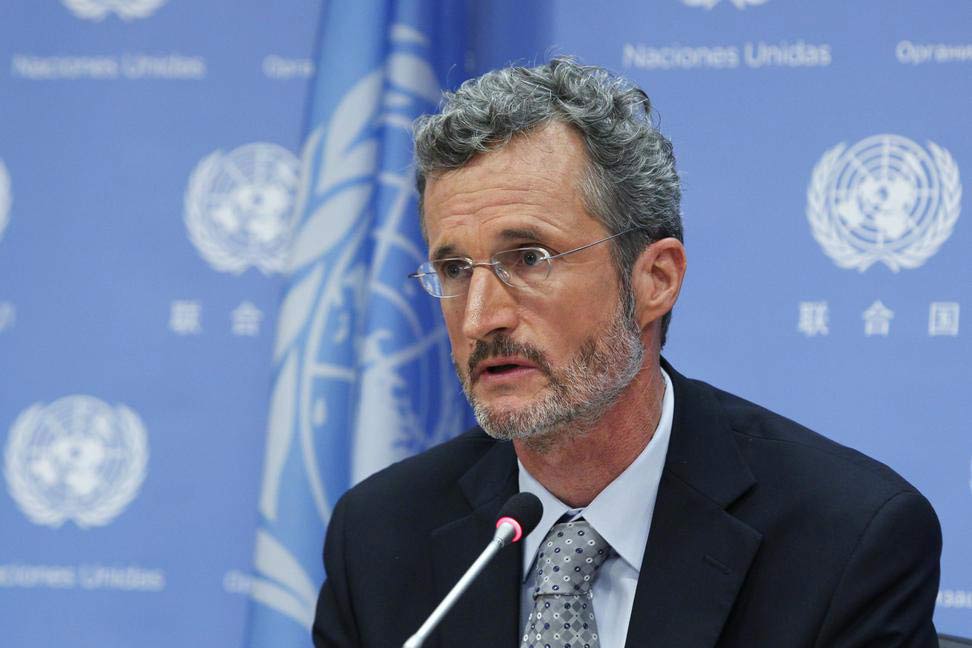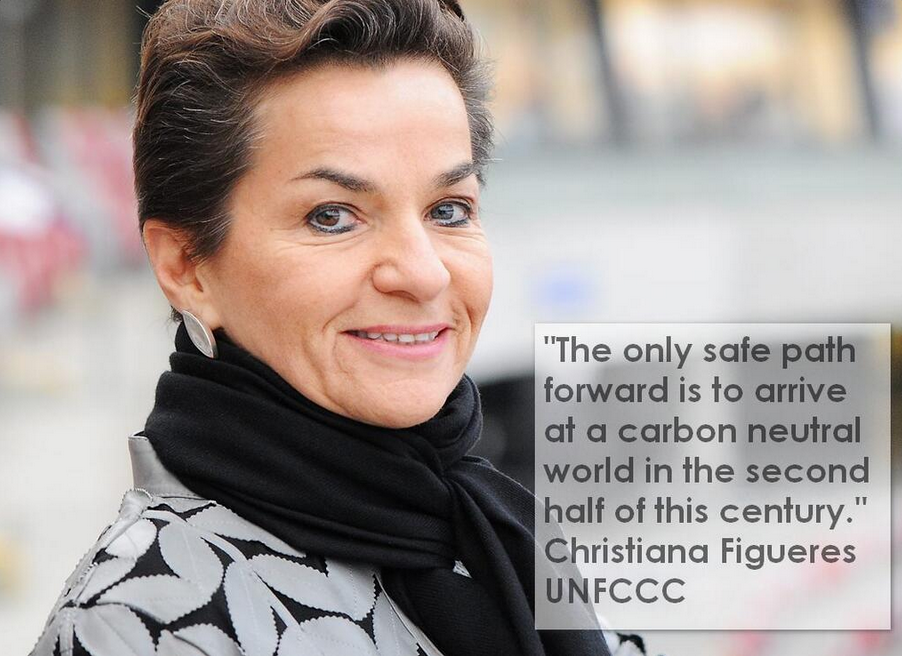Action Areas / Summit Announcements
At the Climate Summit on September 23rd 2014 in New York, at the invite of the UN Secretary-General, global leaders from Government, business, finance and civil society came together to announce bold commitments to action in areas that are critical for keeping global temperature increases to less than two degrees Celsius.
The eight Action Areas are:
Agriculture | Cities | Energy | Financing | Forests | Industry | Resilience | Transportation
Agriculture
The Issue
Food production will need to increase by at least 60 per cent over the next 35 years to provide food security for the 9 billion people expected to be living on the planet by 2050. The changing climate directly impacts food security and the supply of nutritious, ample and safe sources of reasonably priced food for the planet’s 7 billion people as well as their growing demands. The warming of the planet is already affecting yields of crucial crops . Moreover, approximately one-quarter of all greenhouse gas emissions come from land-use, making sustainable practices in agriculture critical.
Session Webcast
Key Documents
Global Alliance for Climate-Smart Agriculture – Action Plan
Press Release: Climate Summit Launches Efforts Toward Food Security for 9 Billion People by 2050
Cities
The Issue
Responsible for about 70 per cent of global greenhouse gas emissions, cities can play a critical role in reducing these emissions – especially as their populations surge over the coming decades and many cities struggle with aging and inadequate infrastructure. Climate change increases the risk and stress to water, sewer, drainage and transportation systems as well as infrastructure, as these systems are more exposed to the impact of increasingly powerful hurricanes, typhoons and other natural disasters. Clear greenhouse gas reduction goals, viable strategies, enhanced capacity and tangible financing are essential for cities to reduce emissions and become increasingly resilient.
Session webcast
Key Documents
Compact of Mayors – Action Statement
Compact of States and Regions – Action Statement
The Cities Climate Finance Leadership Alliance – Action Statement
Energy
The Issue
About 80 per cent of the world’s energy is supplied through the combustion of fossil fuels, which releases carbon dioxide and other pollutants into the atmosphere. At the same time, energy demand is growing along with expanding global wealth, a world population expected to reach 9 billion by 2050, and efforts to provide electricity to the 1.3 billion people now living without it. A shift toward renewable sources of energy such as solar, wind and geothermal — along with greater energy efficiency in appliances, buildings, lighting and vehicles — is essential to use the world’s resources sustainably, diversify economies and successfully address the challenge of climate changes. Sustainable Energy for All, an initiative led by the United Nations and World Bank, has set 2030 as a goal for doubling the global rate of energy efficiency improvement, doubling renewable energy’s share in the global energy mix, and ensuring universal access to modern energy services.
Session webcast
Key Documents
Energy Efficiency
Energy Efficiency Accelerator Platform – Action Statement
Energy Renewables
Africa Clean Energy Corridor – Action Statement and Action Plan
Global Geothermal Alliance – Action Statement and Action Plan
The SIDS Lighthouses Initiative – Action Statement and Action Plan
Financing
The Issue
Shifting the global economy onto a low-carbon and climate resilient development pathway requires an investment of tens of billions of dollars. To achieve this, both Governments and key financial actors must commit to massively scaling up public and private financing to meet the growing challenge of climate change.
Session Webcast
Key Documents
Divest-Invest Global Movement – Action Statement and Action Plan
Global Investors – Action Statement
Pricing Carbon
The Issue
Action is needed soon to reduce greenhouse gas emissions and also to help countries build resilience and prepare for a world of dramatic climate and weather extremes. Mobilizing finance for climate action is a priority, and a robust price on carbon is one of the most effective strategies to unlock private investment. A strong price signal in all major economies—in the form of emissions trading systems, carbon taxes or other mechanisms—will direct financial flows away from fossil fuels and advance the growing global market for energy efficiency and clean energy.
Caring for Climate Business Leadership Criteria on Carbon Pricing – Action Statement
Forests
The Issue
Forests and the services they offer society are crucial to sustainable development and human well-being. While many efforts to slow or halt deforestation have been successful, approximately 13 million hectares of forests continue to be lost each year, contributing up to 20 per cent of annual global greenhouse gas emissions. The clearing of land linked to the development of agricultural commodities is a key factor behind deforestation. At the same time, about 2 billion hectares of degraded forests and other lands – all around the globe – need to be restored. Actions to combat deforestation and speed up the restoration of degraded lands will contribute to economic growth, poverty reduction and greater food security as well as help communities adapt to climate change and secure the rights and livelihoods of indigenous peoples and local communities.
Session Webcast
Key Documents
New York Declaration on Forests – Action Statement and Action Plan
Video: Call for the New York Declaration on Forests
Industry
The Issue
The Industry Action Area recognizes that actions by industries are essential to control global temperature increases — especially industries engaged in the production of energy, waste management, refrigerants and the global transport of freight. A critical and common component of their work is the need to reduce short-lived climate pollutants — primarily methane, hydroflurocarbons (HFCs), black carbon (or soot) and tropospheric ozone. These pollutants, with relatively short lifetimes in the atmosphere of a few days to a few decades, are responsible for a significant portion of global warming. They also are detrimental to human health, agriculture and ecosystems.
Session Webcast
Key Documents
Climate and Clean Air Coalition to Reduce Short Lived Climate Pollutants – Action Statements
Oil and Gas Methane Partnership Action Statement and Plan
Global Green Freight Action Statement and Plan
Phasing Down Climate Potent HFCs Action Statement and Plan
Municipal Solid Waste Action Statement and Plan
Oil & Gas Climate Initiative Announcement – Action Statement
Resilience
The Issue
Climate change is increasing the incidence, frequency and magnitude of natural disasters and exacerbating the vulnerability of many countries and communities around the world. Climate-related hazards – whether drought, powerful typhoons or sea level rise – can have dire consequences on people, property, business, financial systems and state institutions. It is therefore essential to enhance their respective capacity to adapt and be resilient to a changing climate.
Session Webcast
Key Documents
Integrating Risks into the Financial System: The 1-in-100 Initiative – Action Statement
Resilient Cities Acceleration Initiative – Action Statement
Climate Information for Climate Action
Press Release: Climate Summit Scales Up Adaptation and Resilience Support for
Most Vulnerable Countries
Transportation
The Issue
Energy use and greenhouse gas emissions are expected to increase under a ‘business as usual’ scenario by nearly 50 per cent by 2030 and more than 80 per cent by 2050, compared with year-end 2009. This increase in emissions will be primarily caused by a projected surge in the global stock of vehicles. Already in 2009, transport contributed approximately one-quarter of energy-related global greenhouse gas emissions and was responsible for about one-fifth of energy use. Measures that reduce the demand for travel, including compact city planning combined with the large-scale expansion of public transport systems improvements in energy-efficient transportation systems along with the promotion of non-motorised transport, could save Governments, companies and individuals up to $70 trillion by 2050 as less money would need to be invested in vehicles, fuel and transportation infrastructure.
Session Webcast
Key Documents
Transport – Joint Action Statement
International Association of Public Transport – Action Plan
Low Carbon Rail Transport Challenge – Action Plan
























